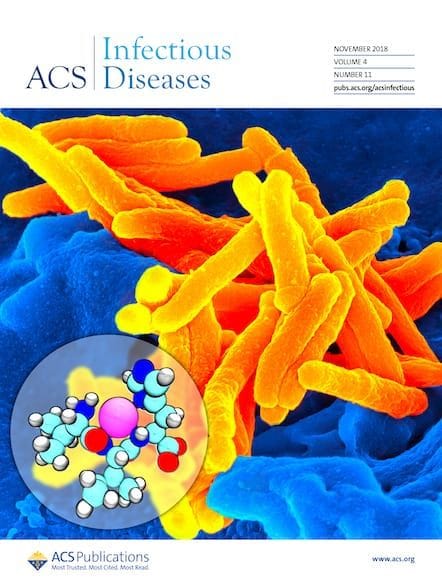Solutions for Drug-Resistant Infections (SDRI 2017) conference met in Brisbane, Australia between April 3-5, 2017. Brisbane welcomed 230 delegates from 18 countries and a range of distinguished invited speakers who are world leading experts in research, industry, funding and policy in the field of drug-resistant infections. The conference covered the following topics and themes: Antimicrobial […]

Solutions for Drug-Resistant Infections (SDRI 2017) conference met in Brisbane, Australia between April 3-5, 2017. Brisbane welcomed 230 delegates from 18 countries and a range of distinguished invited speakers who are world leading experts in research, industry, funding and policy in the field of drug-resistant infections.
The conference covered the following topics and themes:
- Antimicrobial drug discovery
- Improvements to existing anti-infective agents and repurposing
- New drug targets
- Alternate therapies
- Vector control and vaccines
- International models and funding
- Navigating the pipeline
England’s Chief Medical Officer Sally Davies gave the opening plenary talk. Davies has long been an advocate for action on AMR, having led the international campaign over the last six years that culminated in a United Nations (UN) General Assembly declaration last year. Davies’ talk titled, “AMR – The global problem requiring global coordination and response,” described the complex AMR problem requiring diverse and dynamic solutions.
The second day began with Ramanan Laxminarayan from the Center for Disease Dynamics, Economics & Policy (CDDEP), Public Health Foundation Indian (PHFI) and Princeton! Laxminarayan has over 20 years’ experience working in AMR. His research deals with the integration of epidemiological models of infectious diseases and drug resistance into the economic analysis of public health problems.
The third highlight was antibiotic drug discovery industry expert John Rex. He has over 30 years’ experience in drug development and policy focused on antimicrobial agents. He used to head up AstraZeneca’s Global Infectives program and is currently now the Chief Strategy Officer for CARB-X (a new program to accelerate global antibacterial innovation).
The conference would not have been possible without generous support from sponsors. ACS Publications – ACS Infectious Diseases, Journal of Medicinal Chemistry, and ACS Medicinal Chemistry Letters – were vital to the success of SDRI 2017 through their generous sponsorship support.

ACS maintained a highly visible presence at SDRI 2017 as a major sponsor through supporting many components of the conference. First, ACS directly supported The University of Queensland (UQ)’s Dr. Mark Blaskovich session on antimicrobial drug discovery session including ACS Infectious Disease Associate Editors Gerry Wright (McMaster University) and Elizabeth Winzeler (University of California San Diego).
New antibiotics are desperately needed to treat drug-resistant bacterial infections – with novel chemotypes acting on novel targets a rare commodity. This session examined early discovery research that could lead to the first next new class of antibiotics in decades. The session started with Wright, who has been working on antibiotic resistance and discovery for over 25 years. He presented his recent work on identifying agents that block resistance, along with efforts to reverse resistance to a variety of antibiotic classes. He believes a complimentary strategy is through the co-administration of antibiotic adjuvants that block resistance mechanisms directly or indirectly thereby rescuing the activity of existing drugs.
Winzeler was up next and described new leads for drug discovery to treat malaria and overcome parasite drug resistance using two approaches. First of all the Winzeler lab are developing and implementing phenotypic screens that can identify compounds that are likely to provide symptomatic relief, protect against malaria and prevent malaria transmission.
Another SDRI 2017 speaker highlight was Marvin Miller, from the University of Notre Dame, focusing on a daptomycin (Gram-positive active lipopeptide antibiotic) derivative capable of killing Gram-negative Acinetobacter baumannii. More recently, Miller became a member of the ACS Division of Medicinal Chemistry Hall of Fame, in recognition for his 40 years of contribution to medicinal chemistry to study, prevent and cure disease, in particular tuberculosis and bacterial infections.

The overall goal for SDRI 2017 was to set three priorities and guide research efforts towards global solutions for drug resistance research. To close the meeting we invited Jason Gale, Bloomberg News (Sydney, Australia), to lead a concerted discussion to help set these priorities. Panel members included Jennifer Leeds (Novartis, USA), Zuoyu Xu (NIH, USA), plenary speakers – Davies, Laxminarayan and Rex, and scientific committee members Matthew Cooper (UQ) and Liz Harry (University of Technology Sydney). The lively discussion covered funding models, outreach and education, and the issue of how to bridge the gap between industry and academia. All delegates voted on three priorities. The winning priorities were: novel antibiotic drug discovery, new funding models and finally education, outreach, and awareness of drug-resistant infections.

The top two posters from the conference won ACS Infectious Diseases poster awards. The SDRI 2017 scientific committee judged the posters according to excellence in science, novelty and overall presentations, with the awards going to Amy Cain (Liverpool School of Tropical Medicine, UK) and Dr. Alysha Elliott (Community for Open Antimicrobial Drug Discovery (CO-ADD), UQ’s Institute for Molecular Bioscience).

Solutions for Drug-Resistant Infections (SDRI 2017) conference was organized and presented by the Community for Antimicrobial Drug Discovery (CO-ADD) and the Institute for Molecular Bioscience, based at The University of Queensland, Brisbane, Australia.
